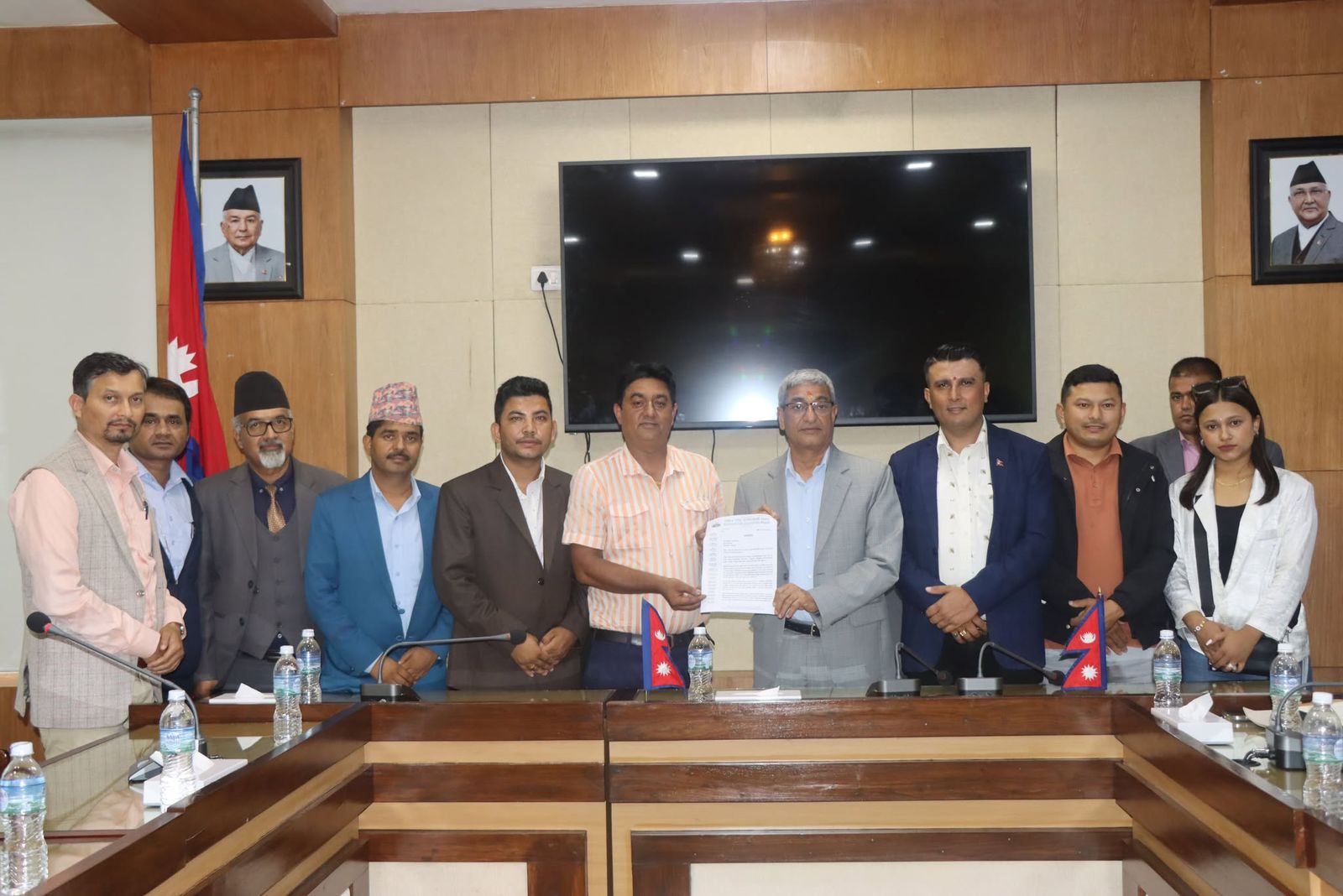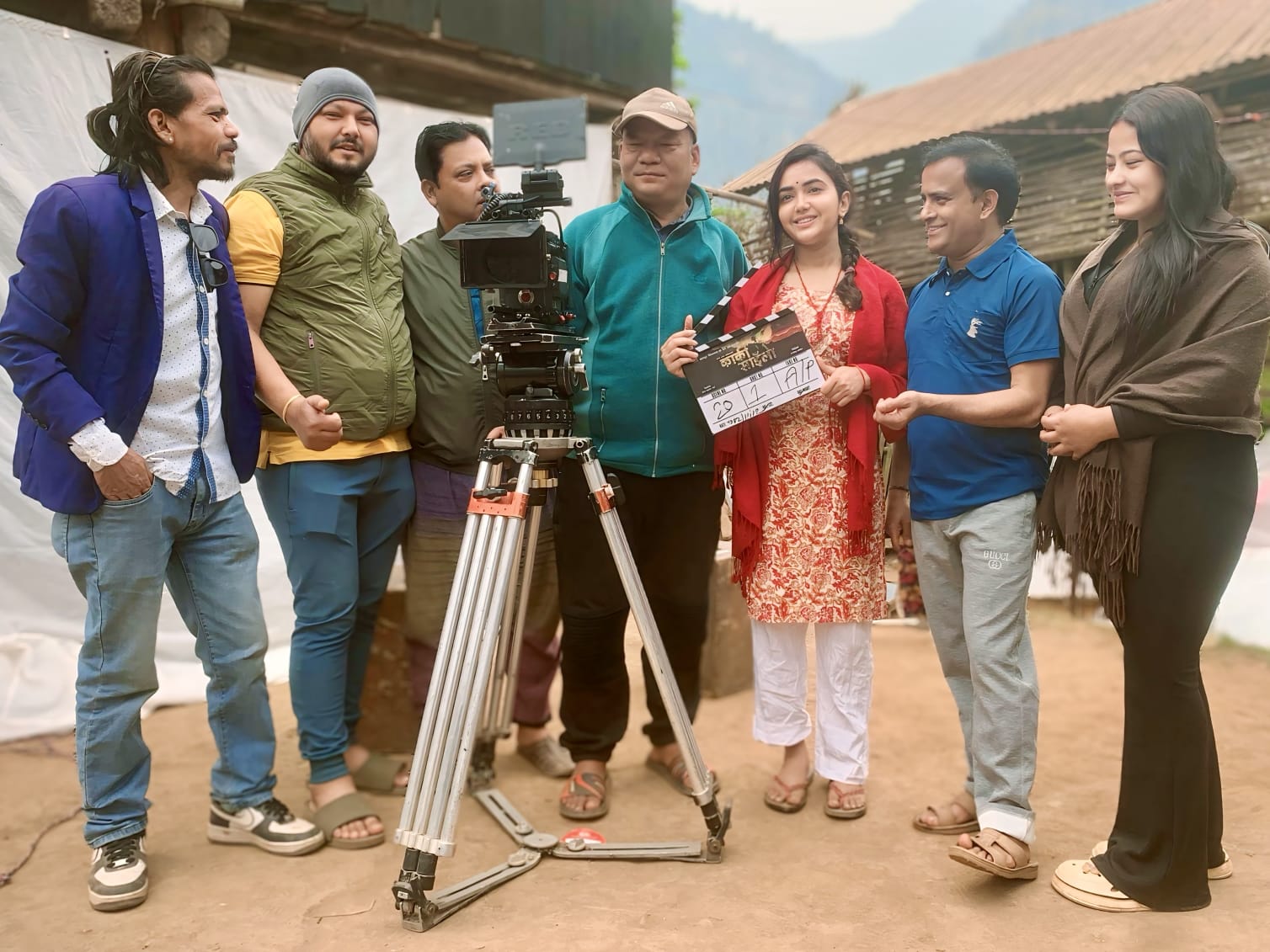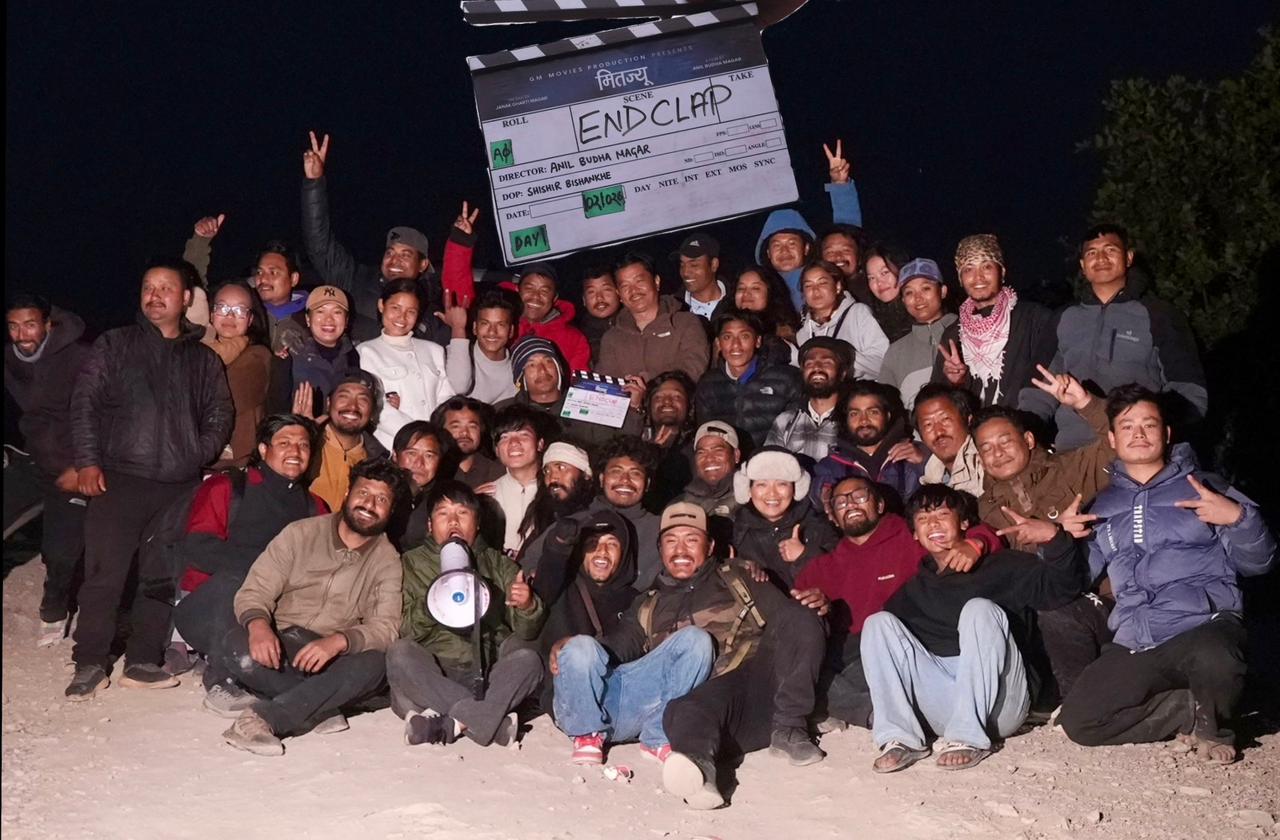
Kathmandu – The Rastriya Lok Sancharakarmi Nepal (National Folk Journalists Nepal) has drawn the attention of Home Minister Ramesh Lekhak regarding the regulation and control of the distortion and anomalies being spread in the name of Lok Dohori (folk duet songs) and Teej songs.
During a meeting held at the Ministry on Wednesday, a delegation led by Chairperson Chandramani Gautam informed the Home Minister that songs released under the name of Teej are increasingly violating social values, cultural norms, morality, and traditions, and urged action for their control.
Spokesperson Shikhar Jung Shrestha read out a 10-point memorandum, which was then submitted to the minister by Chairperson Gautam. The memorandum demands the establishment of an empowered Board for the Protection of Indigenous Arts and Culture and the Development of Songs and Music, in order to monitor and prevent obscene, vulgar, offensive, and distorted songs.
It also calls for the implementation of a pre-approval system for songs released through social media and digital platforms like YouTube, and for strict legal action against composers, singers, producers, and directors who produce or broadcast content that undermines folk culture, traditions, and women’s dignity.
After receiving the memorandum, Home Minister Lekhak pledged to appoint a focal person under the Cyber Bureau to take concrete action against individuals promoting inappropriate behavior through digital music platforms. Deputy Inspector General of Police Navindra Aryal, Chief of the Cyber Bureau, was also present at the meeting. Aryal stated that anyone spreading distortion through songs in violation of the Electronic Transactions Act would be brought under the law.
Krishna Kadel, advisor of Rastriya Lok Sancharakarmi Nepal and Chairperson of Indreni Cultural Development Center, expressed concern over the infiltration of vulgarity in Teej—a festival symbolizing women’s freedom—and emphasized the need for the government to promptly implement the demands.
Founding Chairperson Govinda Giri said that the disappearance of indigenous culture and heritage would harm the state’s reputation and stressed the need for a stronger state presence in cultural preservation.
Immediate Past Chairperson Hariballabh Nepal called for the establishment of a Censorship Board to purify the music industry and preserve cultural values.
Chairperson Chandramani Gautam informed the minister that the organization has long been taking steps to restrict the publication and broadcast of distorted music and urged the state to take concrete steps toward cultural preservation.
Kamal Chaugain (Sargam), the secretary of the organization, informed that he had raised the issue with the Ministry of Home Affairs after repeated requests to artists spreading negative messages through their songs went unheeded. He stated that journalists can only request and broadcast news through the media, but controlling such content is the responsibility of the government. Therefore, he urged the government to take serious action on such matters.
Senior Vice-Chairperson Sudarshan Acharya, Head of the Public Relations Department Gopi Krishna Chapagai, Treasurer Sharan Humagai, members Binita Kunwar, Siraj Gautam, and others were present during the meeting.
Prior to meeting the Home Minister, Rastriya Lok Sancharakarmi Nepal had issued a statement calling for a ban on the Teej songs “Gai Kalo” and “Salla Damarma” released in the market.



 July 10, 2025
July 10, 2025 




